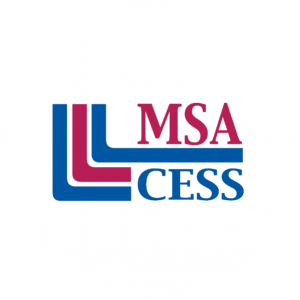By Shari Maser, Off-Campus Program Advisor
Senior citizens have been an important part of my daughter’s educational journey. Many of my students also connect with elders in their families and communities in a variety of ways. The following is an exchange between my then 8-year-old daughter and her grandparents:
Dear Gramma and Grampy,
I’m going to tell you about Native American tribes of Michigan because I don’t think you know anything about them. The Copper Indians were the first of the first people to live here. They mined copper in the Upper Peninsula, and want to know how? They did not have chisels and spikes and modern machinery back then. They just heated the rocks with fires and then they poured freezing cold water that made the rocks go CRA-ACK! Then they dug out the copper with sticks and stuff. They made things out of the copper like weapons. Spears and arrows and things. And they also traded some of them…
Dear Erica,
Thank you for telling us about the early Michiganders. We’d like to tell you about our state too. In order to learn about California, it is important to understand the word “diverse…”
This line of correspondence continued for about a year before they moved on to other topics. Having an interested audience really motivated Erica to learn and understand our state’s history, and swapping stories by mail built a special bond between her and her grandparents. This has been extended through travel, as they have now taken trips together to several different states and countries, jointly engaging in the planning process, immersion in cross-cultural experiences, and sharing memories. They even discovered that some tour companies offer special trips for grandparents and grandchildren!
Erica’s grandparents are not the only senior citizens who have been part of her life and learning. When Erica wanted to know about life during the Depression, she went straight to the source and asked her great-grandmother and elderly neighbor about their own experiences. She learned about the challenges faced by good, hard-working people, the generosity of our familial ancestors, and some of the creative solutions families found to ease the deprivations of poverty.
In Erica’s Little House on the Prairie phase, she became fascinated with one-room schoolhouses. We found several still standing in our county, including one that has been restored and serves as a kind of living history museum. Then we helped the library organize a special event that brought local one-room schoolhouse alumni together with our homeschool group. We served these elders lunch and then the students dined with them, asking all their burning questions about being a student in a one-room schoolhouse. A lengthy and lively discussion ensued. We followed up with a similar event focused on World War II, which generated some intense and emotional conversations and some valuable insights into the human side of the war.
Stories of victory gardens inspired Erica to seek a mentor to teach her how to grow her own vegetables. Stories of scrap-collecting inspired her to learn to make quilts, miniature dollhouse furniture, and doll clothing out of old clothes and other odds and ends. Curiosity about how to use an abacus, the behavior of birds, and chess strategies all led to connections with older adult mentors as well. Who better to ask than people who have both depth of experience and the time available to share it?
What roles have older adults played in your child’s education?







One Response
Dear Shari,
Thank you again for your moving essay about how a young lady may be built up in plenitude. I am so happy these adorable elders of yours are traveling with Erica’s tenderness not to be forgotten and extraordinary experiences they went through together.
I am also a Copper Indian to follow all your traditions and beauties.
Hugs,
Cristina